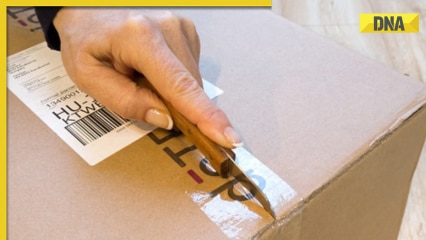What is courier scam, new fraud duping crores from Indians? Here’s how to stay safe, avoid
In a courier scam, scammers who pose as delivery service providers or police officers approach victims and claim to have seized packages having illicit goods. By providing false assurances of being exempt from charges, these con artists trick victims into sending large sums of money.
The “home delivery” option has made city living easier. But it has also introduced a new kind of con in the industry. A 66-year-old resident of Bengaluru became a victim of a ‘courier scam,’ which cost him Rs 1.52 crore.
In a courier scam, scammers who pose as delivery service providers or police officers approach victims and claim to have seized packages having illicit goods. By providing false assurances of being exempt from charges, these con artists trick victims into sending large sums of money.
What is a courier scam?
A courier scam, sometimes referred to as a package scam or delivery scam, is a sort of fraud where fraudsters pose as reputable courier service providers in order to deceive victims into sending money or divulging personal information. These con artists frequently prey on elderly people or other people who are more susceptible to manipulation.
How do courier scams occur?
A typical courier scam entails a string of calls or emails from con artists posing as representatives of a reputable courier service, like FedEx, UPS, or DHL. Claim: The con artists might say that they have seized a package meant for the victim that is missing or contains forbidden goods.
If the victim doesn’t cooperate, they might then threaten to have them arrested or seize their other possessions. Scammers may divulge information about the purported package, such as the sender’s address or tracking number, in an attempt to trap the victim. Caller ID spoofing is another tactic they might employ to have calls seem to be coming from a reputable messenger service.
Once the victim is persuaded that the package is authentic, con artists will ask for payment to release the package or avoid facing legal repercussions. They might request that the victim send gift cards, wire money, or even pay cash.
Here’s how to keep yourself safe from courier frauds
Never give out personal information via email or over the phone.
Be wary of unsolicited emails or calls from courier services.
Refrain from sending gift cards or wire transfers. Scammers frequently request that their victims send gift cards or wire money as payment.
Notify the authorities of any scam attempts. Report a scam call or email right away if you receive one. This will assist in locating con artists and shield future victims.

In a courier scam, scammers who pose as delivery service providers or police officers approach victims and claim to have seized packages having illicit goods. By providing false assurances of being exempt from charges, these con artists trick victims into sending large sums of money.
The “home delivery” option has made city living easier. But it has also introduced a new kind of con in the industry. A 66-year-old resident of Bengaluru became a victim of a ‘courier scam,’ which cost him Rs 1.52 crore.
In a courier scam, scammers who pose as delivery service providers or police officers approach victims and claim to have seized packages having illicit goods. By providing false assurances of being exempt from charges, these con artists trick victims into sending large sums of money.
What is a courier scam?
A courier scam, sometimes referred to as a package scam or delivery scam, is a sort of fraud where fraudsters pose as reputable courier service providers in order to deceive victims into sending money or divulging personal information. These con artists frequently prey on elderly people or other people who are more susceptible to manipulation.
How do courier scams occur?
A typical courier scam entails a string of calls or emails from con artists posing as representatives of a reputable courier service, like FedEx, UPS, or DHL. Claim: The con artists might say that they have seized a package meant for the victim that is missing or contains forbidden goods.
If the victim doesn’t cooperate, they might then threaten to have them arrested or seize their other possessions. Scammers may divulge information about the purported package, such as the sender’s address or tracking number, in an attempt to trap the victim. Caller ID spoofing is another tactic they might employ to have calls seem to be coming from a reputable messenger service.
Once the victim is persuaded that the package is authentic, con artists will ask for payment to release the package or avoid facing legal repercussions. They might request that the victim send gift cards, wire money, or even pay cash.
Here’s how to keep yourself safe from courier frauds
Never give out personal information via email or over the phone.
Be wary of unsolicited emails or calls from courier services.
Refrain from sending gift cards or wire transfers. Scammers frequently request that their victims send gift cards or wire money as payment.
Notify the authorities of any scam attempts. Report a scam call or email right away if you receive one. This will assist in locating con artists and shield future victims.
